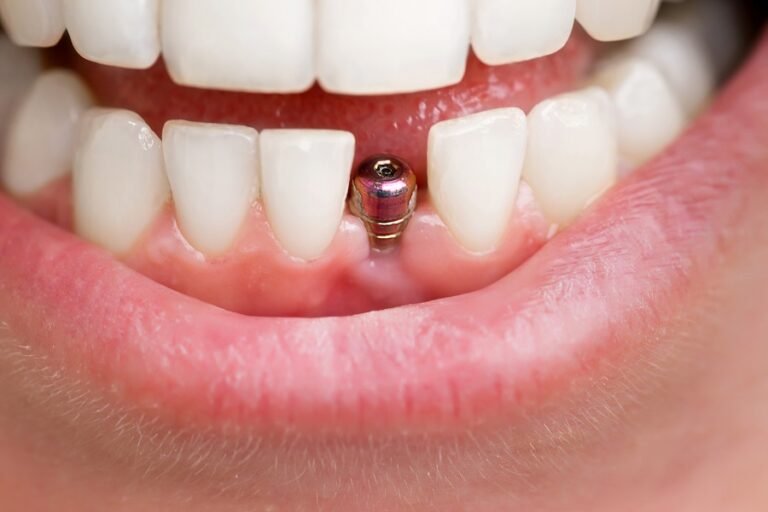Caring for your dental implants after surgery is crucial for healing. Your implant dentist in Glen Oaks, NY, will guide you through this process. First, maintain cleanliness. Gently rinse your mouth with warm salt water. This helps keep bacteria at bay. Use a soft-bristled toothbrush for brushing. Avoid the surgical area for a few days to prevent irritation. Eat soft foods that won’t strain your mouth. Avoid hot, spicy, or crunchy foods. Hydration also plays an important role. Sip water throughout the day to promote healing. Rest is key. Allow your body to recover by avoiding strenuous activities. Manage discomfort with prescribed medications. Following these steps protects your implants and promotes a smooth recovery. Remember, your efforts today lead to a lifetime of healthy smiles. Always reach out to your dentist if you experience any unusual symptoms. They are there to support you every step of the way.
Importance of Oral Hygiene
Oral hygiene is a cornerstone of post-surgery care. Proper cleaning prevents infection and ensures your implants integrate well. It also reduces swelling and discomfort. Follow your dentist’s advice on brushing techniques. Use gentle, circular motions to clean your teeth without disturbing the surgical site.
Dietary Recommendations
What you eat impacts your recovery. Soft foods reduce pressure on your implants. Foods like yogurt, mashed potatoes, and applesauce are great choices. They are easy to swallow and provide essential nutrients. Stay away from hard foods that can disrupt healing.
| Food Type | Recommended | Avoid |
| Soft Foods | Yogurt, Applesauce | Chips, Nuts |
| Warm Foods | Soup, Mashed Potatoes | Hot Spicy Foods |
Hydration and Its Benefits
Keeping hydrated is vital for recovery. Water helps flush out toxins and keeps your mouth moist. This environment aids in faster healing. Avoid alcohol and caffeine as they can dehydrate your body. Drink water throughout the day to stay hydrated.
Rest and Recovery
Rest contributes to healing. Take breaks and avoid heavy lifting. Resting allows your body to focus on recovery. Avoid exercises that raise your heart rate. Follow your dentist’s recommendations on physical activities.
Managing Discomfort
Experiencing discomfort is normal after surgery. Use prescribed medications as directed. Over-the-counter pain relievers can also help. Always ask your dentist before taking any medication. Ice packs can reduce swelling and numb the area temporarily.
When to Contact Your Dentist
Know the signs that require immediate attention. Persistent pain, swelling, or bleeding are warning signs. Contact your dentist if you notice anything unusual. Early intervention prevents complications.
Regular Check-Ups
Regular dental visits ensure your implants are secure. Your dentist will check for any signs of infection or complications. Routine check-ups help maintain your dental health and prolong the life of your implants.
Maintaining your dental implants involves a commitment to daily care and vigilance. By following these steps, you are investing in a future with a healthy, beautiful smile. For additional guidance, refer to the American Dental Association resources.
